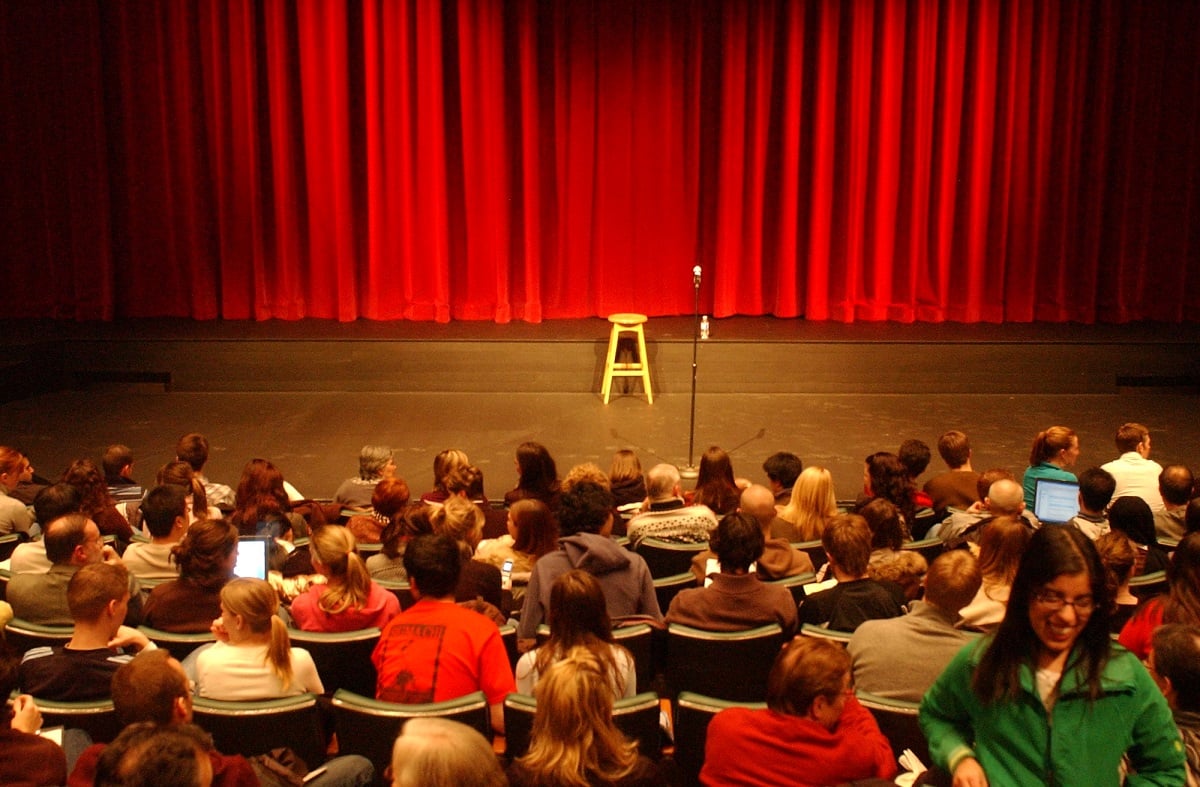
Theatres plan to open at full capacity, but masks will be required at many
Photo: Mohammad Jangda
Masks to stay in arts venues as Stage 4 opening confirmed
The Government "expect and recommend" masks in enclosed public spaces – and cultural venues are taking the lead.
Sixteen months after they first closed, full reopening of England's arts venues has been confirmed for July 19.
Prime Minister Boris Johnson and Health Secretary Sajid Javid gave the green light on Monday (July 12) to progress to Stage 4 of the reopening roadmap next week.
Theatres, concert halls, galleries, museums and festivals can operate without social distancing or capacity limits, a move most in the cultural sector have welcomed.
READ MORE:
- Reopening without masks or insurance places productions at risk
- Why we should mandate masks in cultural venues
However, messaging around face masks has shifted in tone: while legal requirements to wear them will still be dropped, the Government is more strongly urging their use in public settings.
"We expect and recommend that people wear a face covering in crowded and enclosed spaces where you come into contact with those you don’t normally meet," Johnson said.
Large indoor venues are being asked to check attendees' Covid status via the NHS app while transmission rates remain high.
The Government will revisit Covid certification "in certain venues" if necessary, guidance released on Monday says.
Suggestions that ministers will soon announce an insurance scheme for the sector have become increasingly common – yet none are forthcoming.
Guidance says the Government "intends to exempt" the fully vaccinated from isolating if they come into contact with a positive Covid-19 case from August 16, but people who test positive must isolate regardless of their vaccination status.
Productions will remain at risk. Regent's Park Open Air Theatre cancelled performances of Romeo and Juliet on Monday because actors had to self-isolate, and The Prince of Egypt on the West End was suspended after a single positive Covid-19 case.
Industry bodies are calling instead for workers to be able to test themselves out of isolation, rather than shutting the entire production down.
"While we have been waiting for this moment for the past year, commercial insurance is still not available – meaning organisers are faced with the prospect of huge financial losses should any restrictions need to change," Greg Parmley, CEO of LIVE, said.
Appetite for restrictions
Theatres are set to keep masks, one-way systems and hand santiser sations but do away with social distancing, capacity limits, compulsory contract tracing and temperature checks.
Society of London Theatre (SOLT) and UK Theatre, which represent more than 200 venues, say members will follow updated 'See It Safely' guidelines
"The thousands of people who have already come back to the theatre since 17 May have been overwhelmingly positive about their experience and how safe and comfortable they felt. As we increase capacity, we want to ensure that this positive audience sentiment remains," Chief Executive Julian Bird said.
Others are taking a different approach. Assembly Hall Theatre in Tunbridge Wells plans to lift all restrictions, but "will be encouraging mask wearing," a statement from the venue said.
Glyndebourne too said it will end social distancing and sell tickets for all its 1,200 seats.
Some museums, galleries and other attractions are considering changing their terms of entry to require visitors to wear face masks.
York's JORVIK Viking Centre, Barley Hall and DIG will keep restrictions, including masks.
"Our visitor research shows that many of our Covid-safe measures have improved the visiting experience," Director of Attractions Sarah Maltby said.
"We want visitors who might worry about the lifting of restrictions – including the immuno-supressed, vulnerable people and those who have not yet been vaccinated – to feel safe when visiting."
At a meeting hosted by the Association of Leading Visitor Attractions (ALVA) on Monday, it was noted that most indoor attractions intend to continue social distancing – albeit one metre instead of two – and reduced capacity.
Scotland will move to Level Zero on July 19, it was announced Tuesday, meaning outdoor events of up to 2,000 people are allowed. The maximum capacity for indoor events is 400. Masks are required.
Wales will allow venues to operate with reduced capacity from Saturday (July 17) before fully reopening from August 9.
Certification on the table
The PM called for nightclubs – potentially the riskiest venues for Covid transmission – to check attendees' Covid status in lieu of official certification:
"As a matter of social responsibility we’re urging nightclubs and other venues with large crowds to make use of the NHS Covid Pass – which shows proof of vaccination, a recent negative test or natural immunity – as a means of entry."
Recent reports have suggested the Government is delaying introducing vaccine passports until more young people are fully vaccinated.
Night Time Industries Association CEO Michael Kill said the Government was right not to implement them.
"Much of the night time economy relies on spontaneous consumers, and by permitting businesses to opt out, the Government have allowed for this trade to continue."
Association of Independent Festivals CEO Paul Reed said the body was working with Government on new guidance for festivals, and that organisers can have confidence that measures including Covid certification were considered.
"Ensuring the safety of audiences and risk mitigation has always been central to what festival organisers do each year and it will continue to be more so than ever as we begin to emerge from the pandemic."
Join the Discussion
You must be logged in to post a comment.